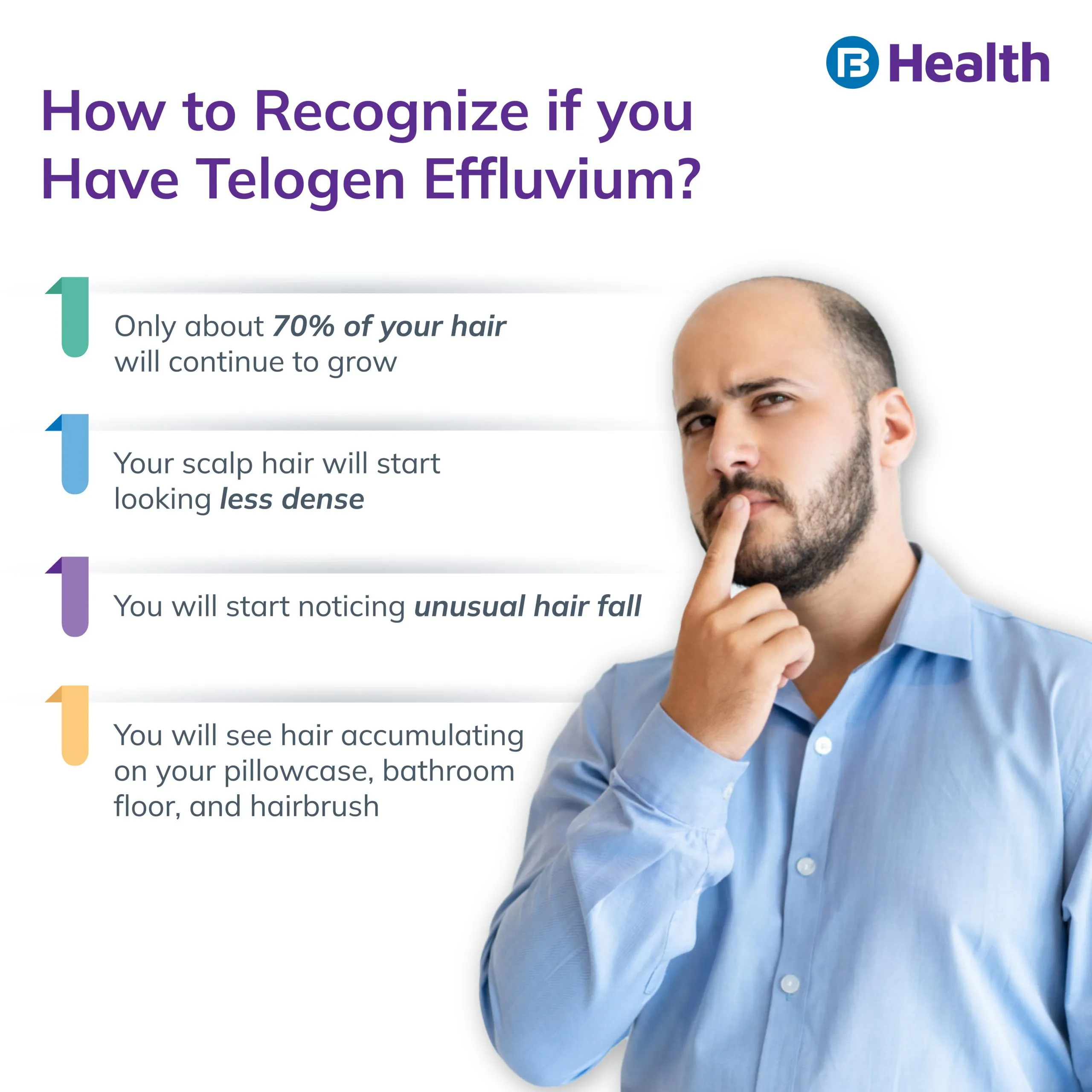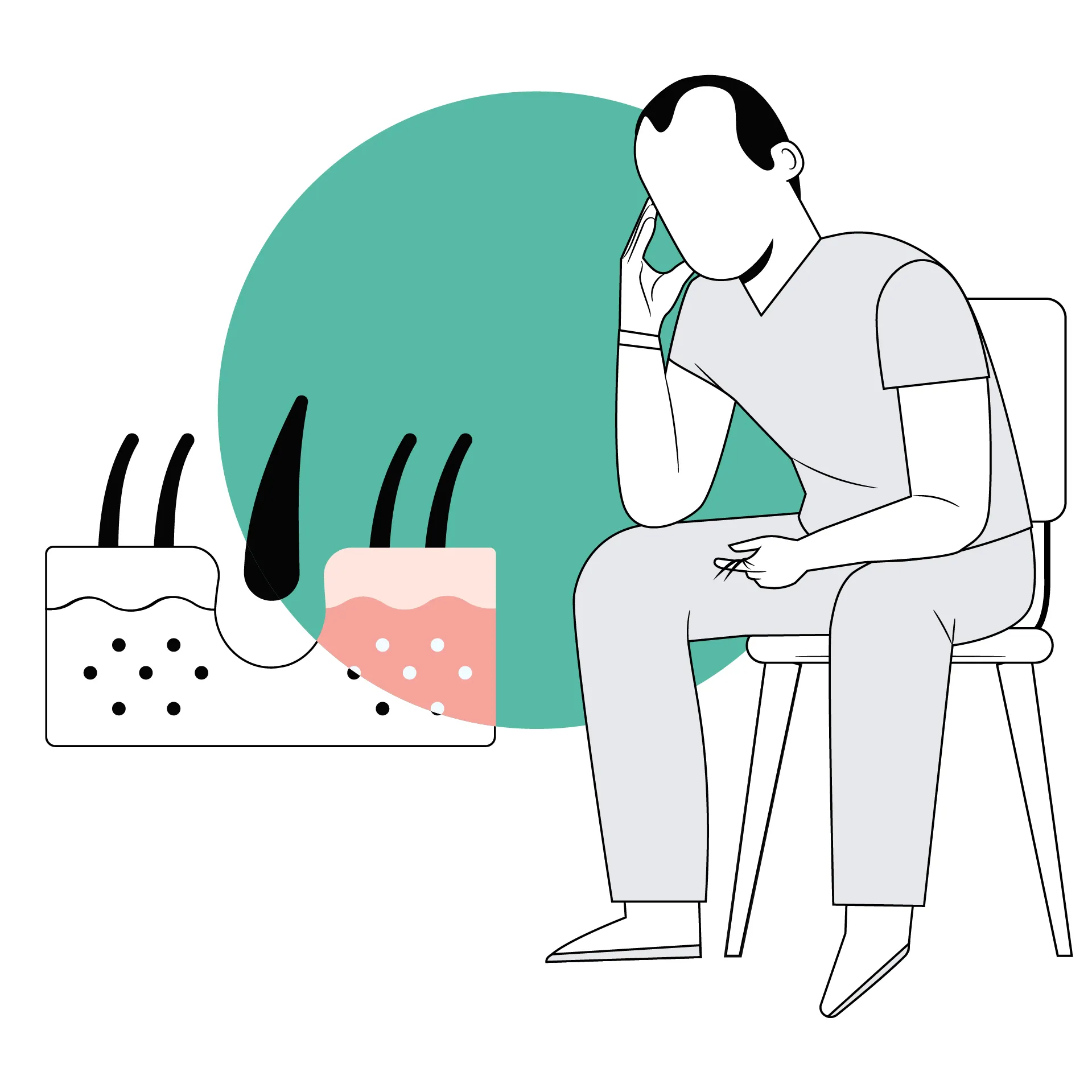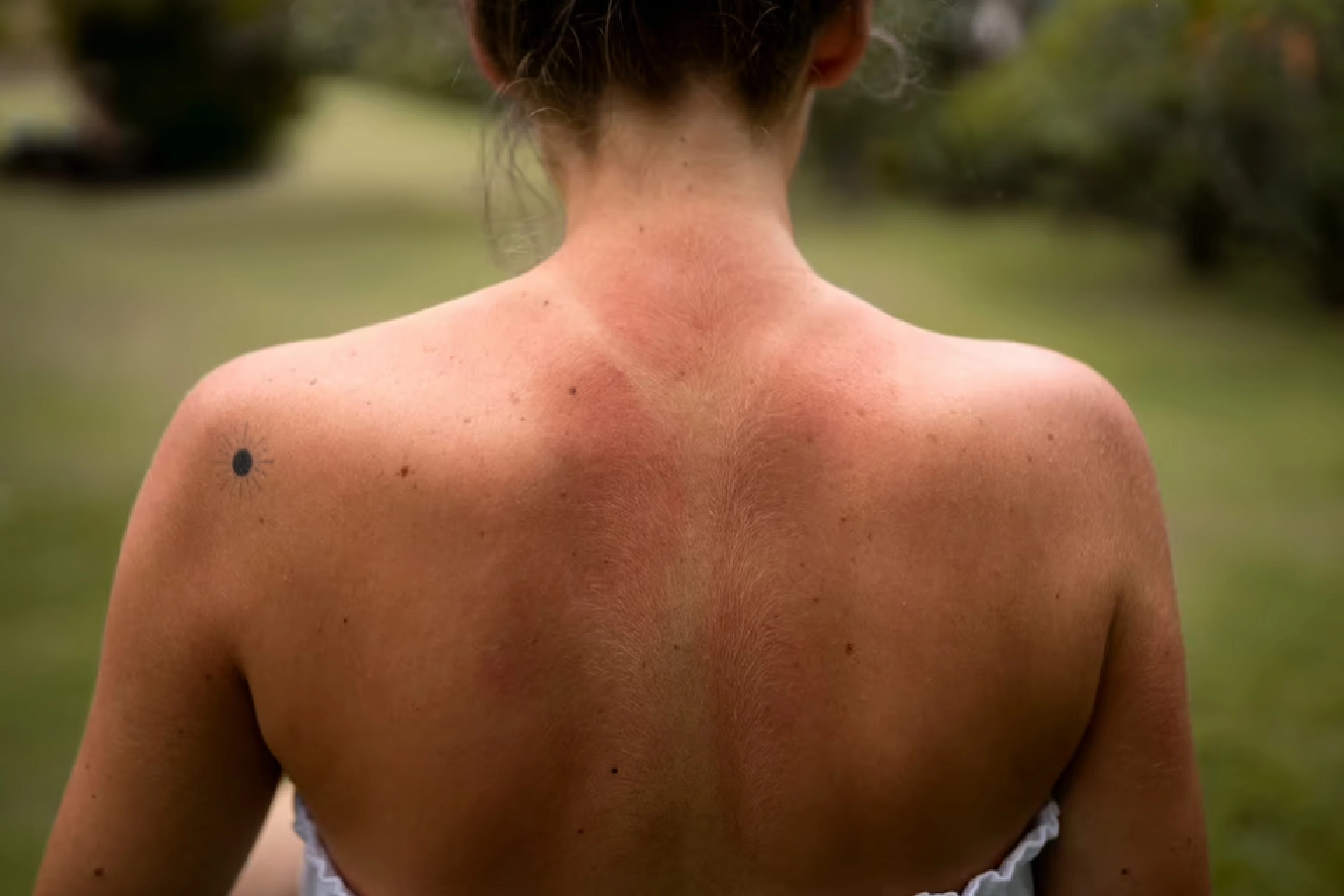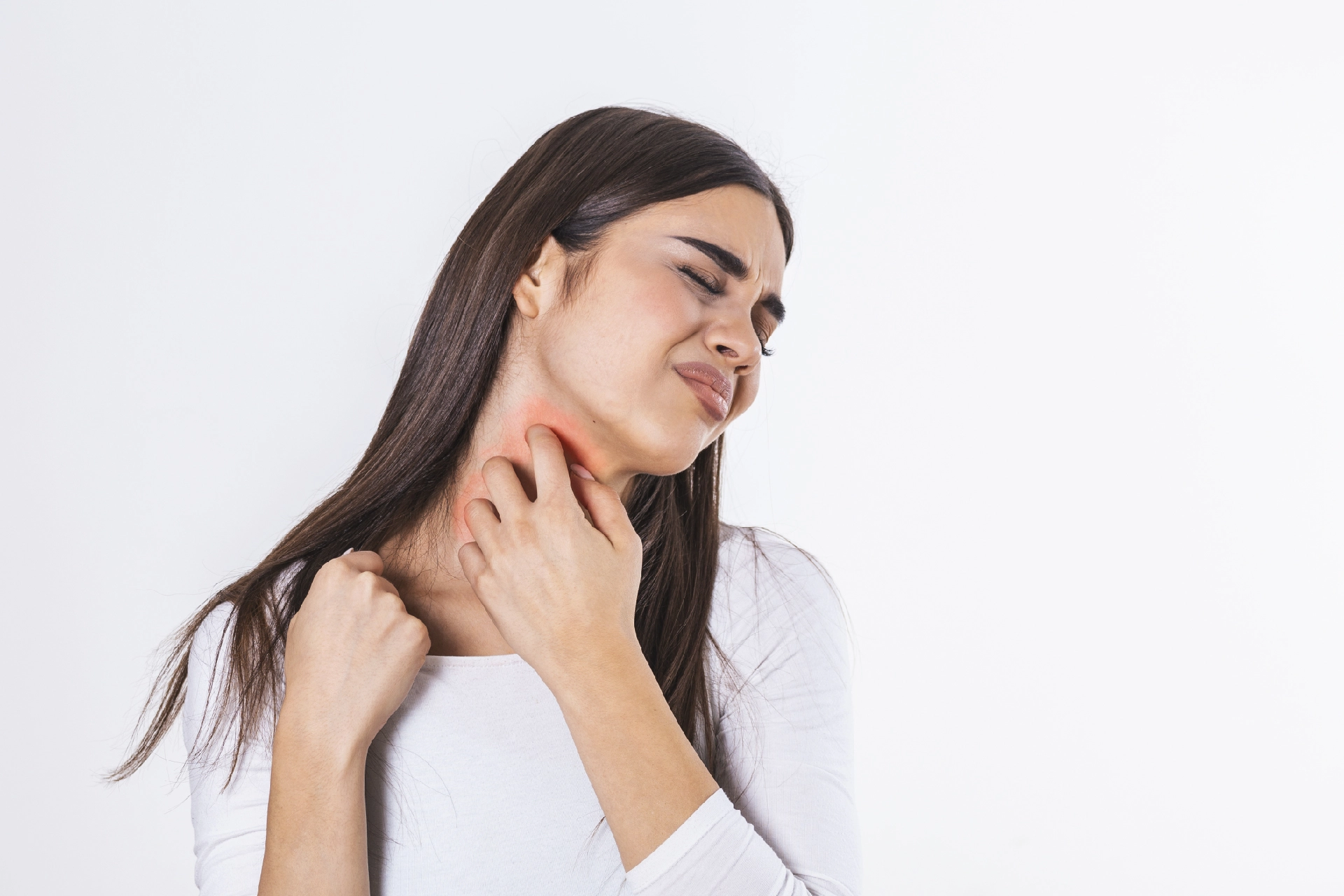Physical Medicine and Rehabilitation | 4 min read
Telogen Effluvium: Symptoms, Treatment and Recovery
Medically reviewed by
Table of Content
Key Takeaways
- Telogen effluvium is a common inflammation-related hair fall problem
- Through treatment and the right diet, telogen effluvium recovery is possible
- Telogen effluvium symptoms develop due to external factors like stress
Did you know that telogen effluvium is the most common cause of hair loss or shedding [1]? However, it can be easily diagnosed and treated. This condition occurs due to a change in a person’s external environment owing to stress, weight loss, and other reasons. In fact, it was also noted in patients after recovering from COVID-19 since running a temperature or having gone through infection can lead to this type of hair loss too.
These problems trigger a disruption in the proportion of hair follicles, which interrupts hair growth. The disruption or reduction of the hair growth process normally happens during the telogen phase, which is commonly termed the resting phase. This gives this condition its name, telogen effluvium. The good news is that the hair loss linked to it is not permanent. Once you undergo telogen effluvium treatment, you can enjoy proper hair growth. Read on to learn other important facts about this disorder.

Causes of Telogen Effluvium
Telogen effluvium symptoms are linked to external conditions such as stress, environmental anomalies, trauma due to accidents, and more. Both physical and mental trauma can trigger the onset of telogen effluvium symptoms such as chronic illness or hypothyroidism, as well as severe diets that restrict calories or even childbirth. Major surgery can also lead to massive hair fall and telogen phase. A variety of medicines can also lead to this problem, such as oral contraceptives, antidepressants, and beta-blockers [2].
Pregnancy and hormonal changes can be other causes of telogen effluvium. If your diet is very deficient in zinc or fatty acids, you may observe this type of hair shedding too.
Telogen Effluvium Diet
For a quick recovery and to reverse telogen effluvium symptoms, consider including the following in your diet.
- Spinach and other leafy vegetables
- Foods rich in the vitamin B, vitamin B12, zinc, and iron
- Proteins like poultry, meat, fish, nuts
- Berries and other fruits, especially those offering a high Vitamin C content
Telogen Effluvium Treatment
Depending on the root cause of telogen effluvium, your physician will decide your treatment path so that you can recover faster. Though doctors may ask you to get a blood test, they may also be able to diagnose the condition by physically checking your scalp and hair width and diameter. From the onset of the disease to telogen effluvium symptoms becoming prominent, you can expect a timeline of more than two months in most cases. Its recovery is possible within six months.
If hormonal imbalances and nutritional deficiencies lead to the condition, doctors may prescribe a diet that addresses the nutritional deficiencies. If the hair loss is severe, surgical hair replacement can be an option too. For women suffering from this disorder, doctors may recommend hormone replacement therapy. Also, protein promotes hair growth and improves hair quality. So, whatever the line of treatment that your dermatologist chooses, they will also advise you to increase your intake of protein.

It is identified by very common symptoms, and in most cases, nutritional deficiency causes the biggest trigger for the condition to worsen. Stress is also among the top causes of this hair disorder. However, once you suspect the onset of the condition, you can book a doctor consultation to confirm the diagnosis and start your treatment. Doing this is easy with Bajaj Finserv Health.
Simply sign in to the platform or app and search for dermatologists or trichologists near you. Then you can choose a teleconsultation, which gives you proper medical care from the comfort of home, or an in-person appointment. Alongside a doctor consultation for telogen effluvium symptoms, you can also talk to a nutritionist about dietary changes that could help you reverse the conditions quickly by restoring your hair health. With all these options at your fingertips, hair fall simply doesn’t stand a chance!
References
- https://scholar.googleusercontent.com/scholar?q=cache:PBlztW1zM4EJ:scholar.google.com/+telogen+effluvium&hl=en&as_sdt=0,5
- https://www.ncbi.nlm.nih.gov/pmc/articles/PMC7320655/
Disclaimer
Please note that this article is solely meant for informational purposes and Bajaj Finserv Health Limited (“BFHL”) does not shoulder any responsibility of the views/advice/information expressed/given by the writer/reviewer/originator. This article should not be considered as a substitute for any medical advice, diagnosis or treatment. Always consult with your trusted physician/qualified healthcare professional to evaluate your medical condition. The above article has been reviewed by a qualified doctor and BFHL is not responsible for any damages for any information or services provided by any third party.




